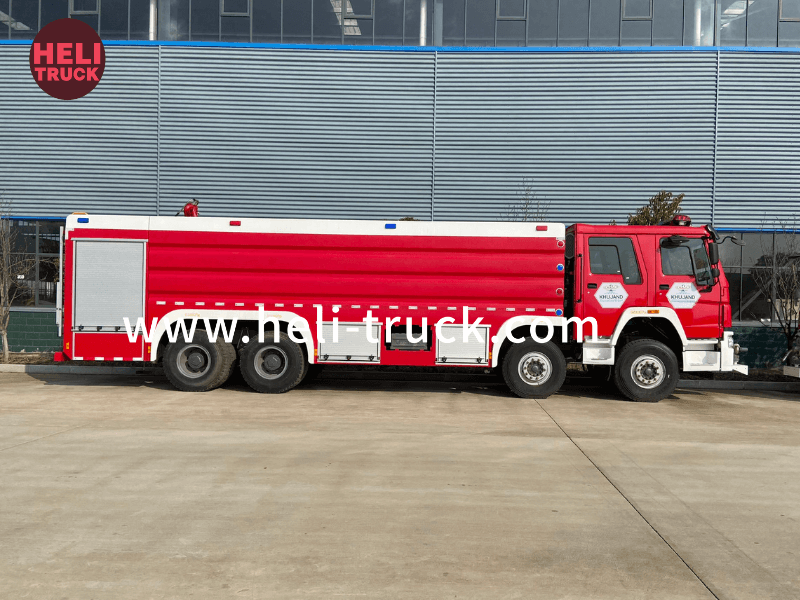Introduction
Garbage truck fleet management plays a crucial role in waste management systems in urban areas, ensuring efficient collection and disposal of municipal waste. With the increasing focus on sustainability and environmental impact, optimizing garbage truck fleet operations has become a priority for municipalities and waste management companies. This article explores the key aspects of garbage truck fleet management, including challenges, best practices, and technologies that can enhance efficiency and sustainability.
Challenges in Garbage Truck Fleet Management

Managing a fleet of garbage trucks comes with its own set of challenges that can impact operational efficiency and cost-effectiveness. Some of the common challenges faced by fleet managers include:
1. Route Optimization: Planning and optimizing collection routes to minimize fuel consumption and travel time while ensuring timely waste collection from all designated areas.
2. Vehicle Maintenance: Ensuring regular maintenance and timely repairs of garbage trucks to prevent breakdowns and minimize downtime.
3. Driver Management: Recruiting and training competent drivers, monitoring driver behavior, and ensuring compliance with safety regulations and waste collection protocols.
4. Environmental Impact: Minimizing the environmental impact of garbage truck operations, such as reducing emissions and noise pollution.
5. Cost Management: Balancing operational costs, including fuel expenses, maintenance costs, labor costs, and vehicle replacement costs, to ensure profitability and sustainability.
Best Practices in Garbage Truck Fleet Management
To address these challenges and optimize garbage truck fleet operations, fleet managers can implement several best practices that improve efficiency and sustainability:
1. Route Optimization Software: Utilizing route optimization software to plan efficient collection routes based on factors such as waste volume, traffic conditions, and proximity to disposal facilities. This can help reduce fuel consumption, travel time, and operational costs.
2. Telematics and GPS Tracking: Installing telematics systems and GPS tracking devices in garbage trucks to monitor vehicle location, speed, fuel consumption, and driver behavior in real time. This data can be used to optimize routes, improve driver performance, and enhance overall fleet efficiency.
3. Preventive Maintenance Programs: Implementing a preventive maintenance program to schedule regular maintenance checks, inspections, and repairs for garbage trucks to prevent breakdowns, extend vehicle lifespan, and reduce maintenance costs.
4. Driver Training and Incentives: Providing comprehensive training programs for drivers on safe driving practices, waste collection procedures, and vehicle maintenance. Incentivizing drivers based on performance metrics such as fuel efficiency, route adherence, and customer satisfaction can improve driver engagement and operational efficiency.
5. Alternative Fuel Vehicles: Transitioning to alternative fuel vehicles, such as electric or natural gas-powered trucks, to reduce emissions, noise pollution, and dependency on fossil fuels. Long-distance vacuum trucks for sale in green technologies can enhance sustainability and align with environmental goals.
6. Data Analytics and Performance Metrics: Analyzing data on fleet performance, fuel consumption, maintenance costs, and route efficiency to identify areas for improvement and make data-driven decisions. Setting key performance indicators (KPIs) and benchmarks can help track progress and optimize fleet operations.
Technologies for Garbage Truck Fleet Management
Advancements in technology have revolutionized garbage truck fleet management, offering innovative solutions to streamline operations and enhance efficiency. Some of the key technologies that can benefit garbage truck fleet management include:
1. Fleet Management Software: Integrated fleet management software solutions that provide real-time visibility into fleet operations, including route planning, scheduling, dispatching, and performance monitoring. These platforms can help optimize routes, improve communication among drivers and dispatchers, and track vehicle maintenance schedules.
2. Internet of Things (IoT) Sensors: IoT sensors installed in garbage trucks can collect data on vehicle performance, fuel consumption, maintenance needs, and environmental conditions. This real-time data can be analyzed to optimize routes, reduce fuel waste, and improve operational efficiency.
3. Automatic Vehicle Location (AVL) Systems: AVL systems use GPS technology to track the location of garbage trucks in real time, enabling fleet managers to monitor vehicle movements, optimize routes, and respond to emergencies or service requests promptly.
4. Mobile Applications: Mobile applications for drivers and fleet managers that provide access to route information, customer requests, work orders, and communication tools. These apps can streamline communication, improve productivity, and enhance customer service.
5. Predictive Maintenance Tools: Predictive maintenance tools use data analytics and machine learning algorithms to predict when maintenance is required based on vehicle health indicators. By identifying potential issues before they escalate, fleet managers can schedule preventive maintenance proactively and avoid costly breakdowns.
6. Electric Vehicle Charging Infrastructure: Installing electric vehicle charging stations at depots and strategic locations to support the transition to electric garbage trucks. This infrastructure can help reduce emissions, lower fuel costs, and promote sustainable fleet operations.
Conclusion
Optimizing garbage truck fleet management is essential for ensuring efficient waste collection and disposal while minimizing environmental impact and operational costs. By implementing best practices, leveraging technologies, and prioritizing sustainability, fleet managers can enhance fleet efficiency, improve route optimization, reduce emissions, and achieve long-term profitability. Embracing innovation and adopting green technologies will be key to transforming garbage truck fleet management for a more sustainable future.
